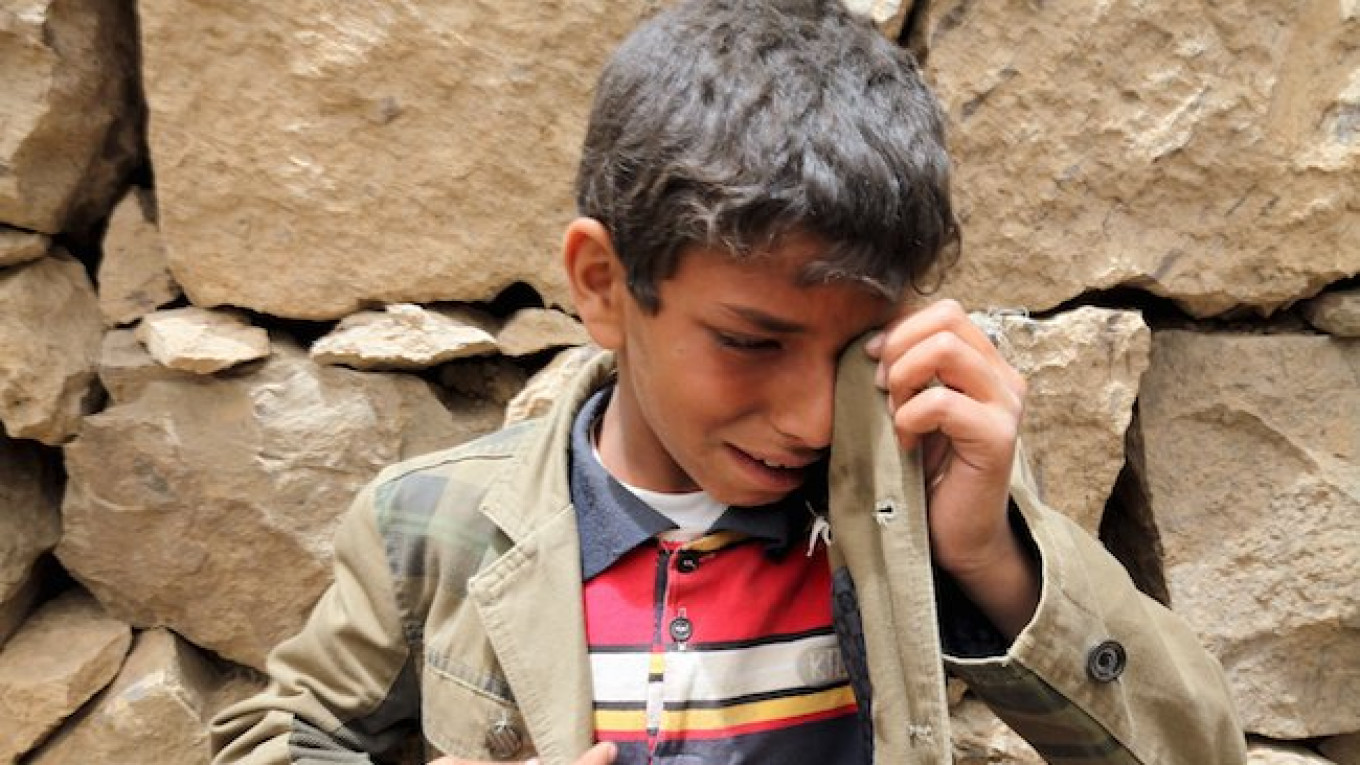The International Committee of the Red Cross said Saturday three shipments of aid and medical staff it is trying to send to Yemen were still blocked, despite appeals to the Saudi-led military coalition which controls Yemeni air space and ports.
The ICRC is seeking security guarantees for two planes to Sanaa, one with medical supplies for up to 1,000 wounded people and a second with 30 tonnes of medical and water sanitation supplies, as well as a boat to take a surgical team to Aden.
The aid organization on Tuesday accused the Saudi-led coalition, which is waging a 10-day-old campaign of air strikes on Houthi fighters in Yemen, of preventing aid deliveries.
"Our supplies are still blocked," spokeswoman Sitara Jabeen said. "The situation is getting worse, every passing hour people are dying in Yemen and we need to bring this in urgently."
She was speaking ahead of a United Nations Security Council meeting called by Russia to discuss a humanitarian pause in the air strikes.
U.N. relief coordinator Valerie Amos said Thursday 519 people have been killed in the fighting in the past two weeks and nearly 1,700 wounded, without specifying whether those figures included combatants.
The conflict is also taking its toll by cutting off vital services. Residents of central Aden, the southern city where Houthi fighters and their allies have been battling forces loyal to President Abd-Rabbu Mansour Hadi, said Saturday some areas had been without water or electricity for two days.
Uncollected rubbish was also gathering in the street, a potential health threat in the absence of running water.
Another emergency medical aid group, Medecins Sans Frontieres, has also said that airport closures and naval restrictions in Yemen have prevented it from sending in medical teams and supplies.
A Message from The Moscow Times:
Dear readers,
We are facing unprecedented challenges. Russia's Prosecutor General's Office has designated The Moscow Times as an "undesirable" organization, criminalizing our work and putting our staff at risk of prosecution. This follows our earlier unjust labeling as a "foreign agent."
These actions are direct attempts to silence independent journalism in Russia. The authorities claim our work "discredits the decisions of the Russian leadership." We see things differently: we strive to provide accurate, unbiased reporting on Russia.
We, the journalists of The Moscow Times, refuse to be silenced. But to continue our work, we need your help.
Your support, no matter how small, makes a world of difference. If you can, please support us monthly starting from just $2. It's quick to set up, and every contribution makes a significant impact.
By supporting The Moscow Times, you're defending open, independent journalism in the face of repression. Thank you for standing with us.
Remind me later.


